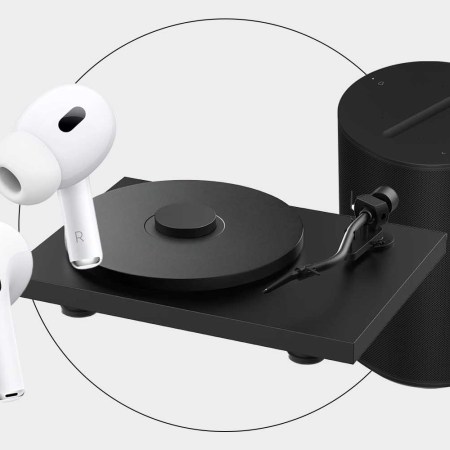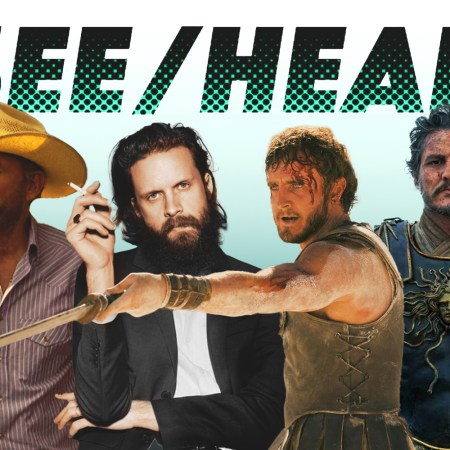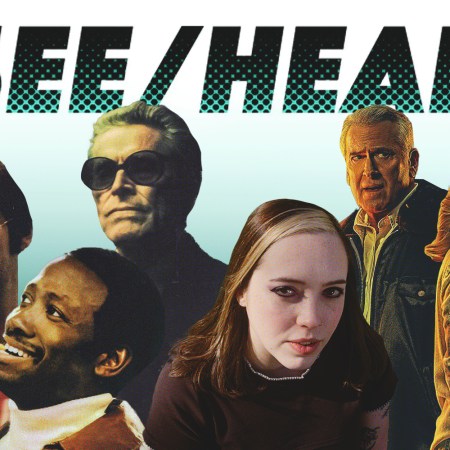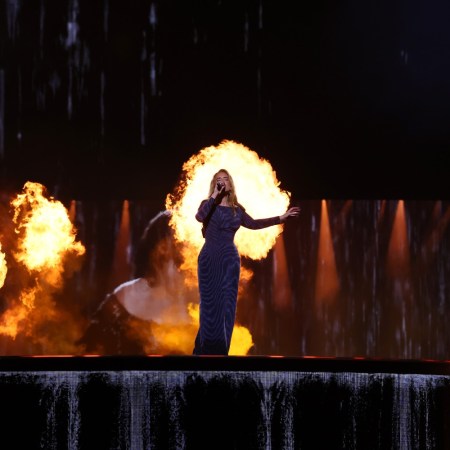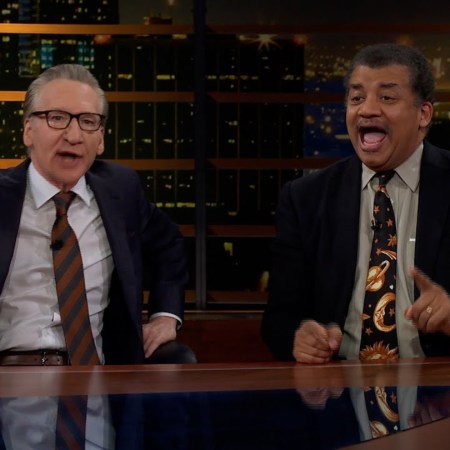Music is personal. It gives wings to our dreams. It frames the moments of our lives. It provides the longitude and latitude for the map of our heart.
Music is also political. It is the sound of America’s disenfranchised, made electric.
But perhaps most of all, music is social. It is our handshake—sometimes secret, sometimes most public—to our world. And it is the world waving back, saying: Come here. Come join our tribe.
This is music: Identity. Amity. Community.
Identity: We heard a song, and we thought: that song is me. It awakens something in me, it confirms something I suspected was there but could not name. We saw a face on a t-shirt, on TV, or on a magazine cover and we felt our suburban stupor become ecstatically unstable. We felt there was someone else out there like us.
Amity: Music is our friend. It comforts us when we are sad, elevates us when we need to be lifted with joy or inspired by brilliance. It speaks to us with words we wish we had thought of ourselves, accompanied by melodies and textures that instantly bond to the memories of the defining moments of our life.
Community: The people we met because of a band became our family.
Now, that last one is huge, and it is what I want to talk about today.
We may be born into a family, and we may return a family. But we may still desire a family bonded by shared experiences and passions, rather than by DNA.
Imagine entering a room, a room full of noise. It is a room full of those seeking not the spotlight of acclaim, but the warmth of family.
Why are you looking for a Family? Maybe you are a middle child. Maybe you have been on the fist end of a father made angry by subjugation and marginalization. Maybe you have been beaten by jocks and protected by greasers. Maybe you have been laughed at in locker rooms and hollered at when ropes dangling from gym ceilings burned your hands. Maybe you have looked for a light in a mother’s eyes and found only the dulled cinder of surrender. Maybe you have been checked out, slow and mean, on a cold 7 Train with no red beret in sight. Maybe you have stolen Fritos so you could save up for Docs. Maybe you feel eyes on the back of your head every moment you are awake. Maybe you have been called freak, geek, punk or faggot, and you want to learn to own and love those labels. Maybe you have been pelted by candy when you’re just trying to watch a movie. Maybe you ask yourself, isn’t it my parent’s job to save me from their future?
The Hardcore Punk movement in New York City in the 1980s was a family. It did not necessarily seek to change the world; I believe its members were seeking a community they could count on, since they never could count on their teachers, priests, or parents. They wanted someone to watch their back, they wanted someone whose back they could watch, and they wanted a world where they counted as much as anyone else.
Although I had played a not insignificant role in the early days of New York Hardcore (circa 1980–82), I will admit to having moved away from the scene around the time that NYHC began to assert itself as a movement completely independent from its British and art school antecedents.
Many of these NYHC bands did not make music to feel singular or superior, or to be lauded as geniuses or artistes; they made music to engage a crew of equals, to build a family.
I will admit that I did not necessarily understand this at the time. To me (especially as I began to experiment with making my own music), I thought music was a way to mark yourself as distinct, to create a myth based on your own supposed ability to be a remarkable individual. I did not understand NYHC’s essential message and goal, which was to create a family based on unity, equality, and community. I even profoundly misunderstood one of the essential elements of hardcore performance: Stage diving. It confused me because, to my eyes, it created an equivalency between the artist and the audience. How stupid I was! That was the exact point. It said, we are you, you are us, we are crew.
This, I think, typifies the beauty of the 1980s hardcore movement in New York City. When you watch videos from that era, you see band members reaching into the audience to give a hand—literally, a helping hand—to anyone who wants to join them on stage. They allow friends and strangers to share the spotlight with them. The band onstage was creating an experience of community, not exclusion.
I had assumed that loving music, making music, was an act of individuality. Due to my limited purview, I had never considered that it could also be an act of community. See, I found my family in between headphones. But the NYHC acolytes found an actual family, one they made themselves.
My detachment from the movement meant that I missed some truly excellent bands, most notable among them: Murphy’s Law.
Murphy’s Law recorded beautiful, churning songs about life as it was lived, dusted with wit and sung with clarity. These were your neighbors, your friends, telling your story, and setting it to a kind of loping, Oktoberfest Punk Rock that recalled the Brits—especially Discharge, Sham, the Pistols, or the Cockney Rejects—while transforming it into something that was as distinctly American as Appalachian fiddle music. It was carelessly careful; it was better than you could do, without being better than you.
This all came to mind this week because Todd Schofield, who, as Todd Youth, was a long-time member of Murphy’s Law, passed away at the age of 47. And not long ago, the leader of Murphy’s Happy Family, James Drescher, was critically ill. The enormous outpouring of love, affection, and support for these people reminded me of everything that was positive about the New York Hardcore movement when it was at its very best: This was a family. Decades had not dimmed this love, not one iota; community was not a memory. The bonds of this family literally screamed from the dim columns of social media, and in a benefit for Jimmy and a tribute concert for Todd.
It also reminded me that there is far more to music than the kind of clique-ish frenzy to be found in the extremes of art (that feeling I would get when my face was a mere six inches away from Thurston Moore’s shrieking guitar). I had always assumed music was “about” these kinds of highs. And I am sure it is, to some degree. But it is also about a family coming together where there was no family before, a community under the flag of a band, the nights out that becomes the friends you can turn to for the rest of your days.
With that in mind, I dedicate this piece to Todd Schofield, who will be missed, and Jimmy Drescher, who is, very thankfully, still very, very much with us.
Note: I will discuss my curious role in the New York City punk and hardcore movement, and specifically my role as a witness to the birth of the Beastie Boys, next week.
This article was featured in the InsideHook newsletter. Sign up now.

